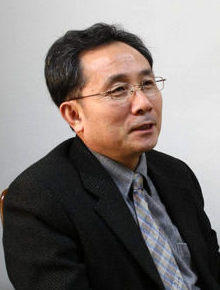Posted on : Jan.4,2007 15:51 KST
Modified on : Jan.4,2007 15:59 KST
Park Si-ryong, professor of biology education, Korea National University of Education
Given recent efforts in South Korea to replenish the population of endangered species, environmental groups and local and state governments might as well be in a state of competition about saving species on the verge of extinction. Reckless development on the part of human beings is what leads to the destruction of habitats and therefore extinction, so it is a good thing to have people trying to reintroduce species to safe numbers. But the effort is likely to fail unless there is an attempt to heal the causes of extinction in the first place.
This type of effort is new to Korea, but many industrialized nations began similar projects decades ago. However, of 126 such projects worldwide, only fifteen succeeded. The difference between success and failure is quite simple. Attempts to replenish a species succeeded when efforts to restore its habitat were done in the context of the ecosystem as a whole. Attempts that were shortsighted events involving publicity more than anything else have all failed. In the truest sense, restoring the population of living things is not about propagating a species, but making sure the species is able to survive as a member of its ecosystem. So far, we have too often thought of the process as nothing more than increasing a species’ numbers, and have not taken interest in how it is going to get along with everyone else in the neighborhood.
Which is why the national government, followed closely behind by environmental groups and local governments, is declaring that it is going to replenish the crested ibis, the great bustard, and the crane. All of these birds are seasonal. Restoring bird species that no longer winter in Korea will not be impossible. But to succeed, you need to understand what happens beyond the Korean peninsula and have expert knowledge of the world ecosystem and fowl behavior on the whole. Taking these three bird species on the verge of extinction and propagating and releasing them in areas of China and Russia - where they normally breed - would mean these seasonal birds would probably visit the peninsula during their normal yearly cycle. But it would cause a natural disturbance to release them into nature in Korea.
The World Conservation Union has established standards for such projects. In reference to seasonal birds instead of resident birds, it uses the term "translocation" instead of "reintroduction" and recognizes translocation only in artificially made environments. In the case of birds, however, there are limits to what can be done with translocation because there is always the possibility they are going to deviate from their man-selected habitat.
If we propagate and release in Korea birds that only winter here, it is highly likely they are going to become resident birds instead of seasonal ones. This is because of the unique behavioral characteristics of birds in general; if seasonal birds are going to move about a continent or two they need to practice following their mothers or other birds for long distances from their first year.
Having seasonal birds live in a region as permanent residents would lead to other problems for the ecosystem. Korea has already seen what can happen as a result. Jeju Island did not used to have magpies. In 1989, however, an airline released 53 of them in the island province during a celebration marking the start of a new route. Now there are about 15,000 of them and they are causing all sorts of unseen problems for airplanes, orchards, and telephone poles. It is a fine example of how humans pay a harsh penalty when they go against nature.
Instead of inciting everyone to jump on the "reintroduce species" bandwagon, government agencies urgently need to create guidelines and form deliberation commissions composed of experts that know how to properly establish genetic diversity and how projects will affect habitats and ecosystems. Artificially propagated species are the result of human action, and we must not forget that nature belongs to all of us, other species included, and our choices should not supercede theirs.
Please direct questions or comments to [englishhani@hani.co.kr]






